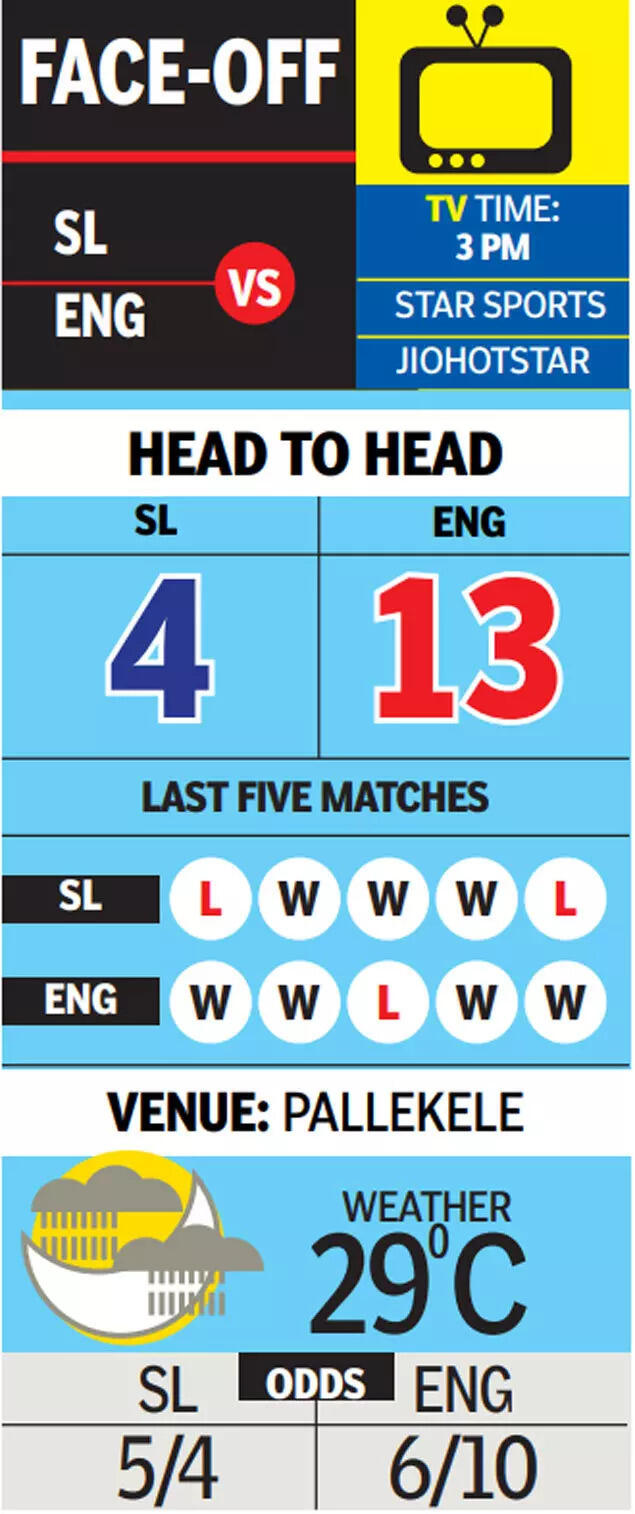Dark clouds have loomed over Kandy this week, with rain sweeping across the Hanthana mountain range and keeping the covers on at the Pallekele International Cricket Stadium on Saturday.Go Beyond The Boundary with our YouTube channel. SUBSCRIBE NOW!More showers are expected on Sunday, threatening to intrude on this T20 World Cup Super 8 contest between Sri Lanka and England. If the weather relents, a duel of spin could define the clash.England return to familiar territory after brushing aside Sri Lanka 3-0 in a T20I series here earlier this month. That success provides reassurance, especially after a stuttering group-stage campaign in which they edged Nepal by four runs, lost to West Indies by 30, then beat Scotland by five wickets and Italy by 24 runs.
England captain Harry Brook conceded that his team were “too careful with the bat” in the group stage. “We’ve been too careful with the bat. We can probably be a bit more brave in certain situations and have more faith in the guys behind us to be able to put up a decent score,” he said, adding, “We probably underestimated a few of the teams and they put up a really good fight. Thankfully, we are in the Super 8s.”Sri Lanka’s journey has followed a similar arc of promise and pause. Comfortable wins over Ireland and Oman set the tone and a chase of 182 against Australia at this venue showcased their credentials. Yet, a stumble against Zimbabwe in Colombo has stalled their momentum.
Poll
Who do you think will win the Super 8 match between Sri Lanka and England?
For the co-hosts, much rests on opener Pathum Nissanka, who struck an unbeaten 52-ball century against Australia. With 199 runs in the group stage, he sits among the leading scorers. Brook reckoned Nissanka’s form will be a threat and said England have plans to remove him early. Kusal Mendis, with three half-centuries in four innings, adds gravitas at the top of the order.However, the absence of pacer Matheesha Pathirana, ruled out for the remainder of the competition, has dented their bowling resources. Maheesh Theekshana’s six wickets, meanwhile, underline his importance.With the ball, legspinner Adil Rashid remains vital to England’s plans, supported by Jofra Archer’s pace. Rashid has six wickets in the tournament, including 2/16 against West Indies, highlighting his threat on surfaces that grip. Asked if Jacob Bethell is fit to bowl, Brook said: “Not sure yet, he’s got a decent cut in his finger. If there’s some way we can get around that, then we’d bowl him.”






